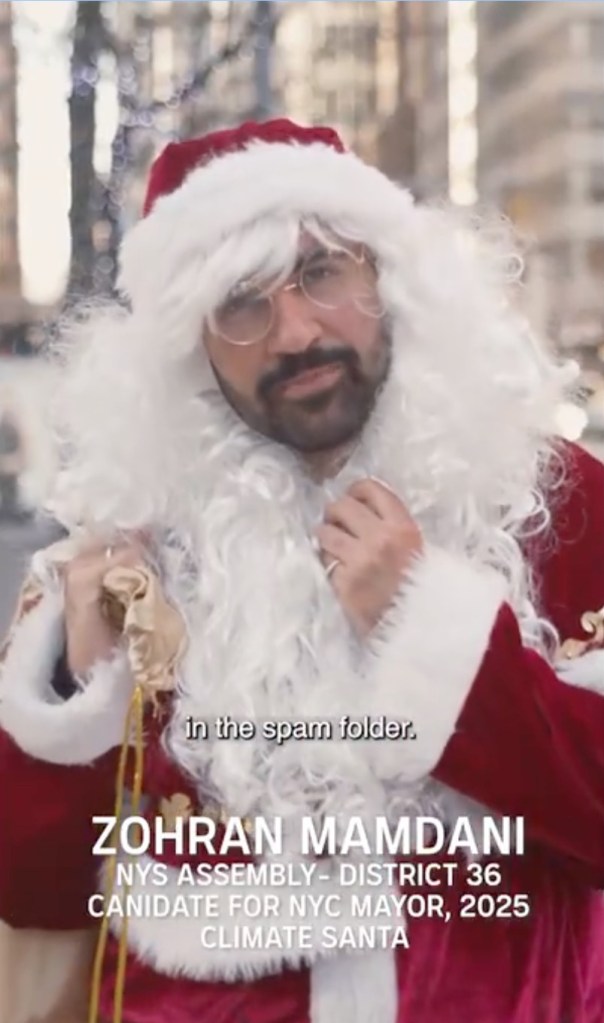🔴 Website 👉 https://u-s-news.com/
Telegram 👉 https://t.me/usnewscom_channel
With early voting less than a month away in the city’s messiest mayoral election in decades, plenty of New Yorkers feel like throwing up their hands.
Disillusion is understandable, but common-sense voters can’t afford to sit this one out.
The side that turns out wins.
The extreme left is winning because it recognizes the power of organizing.
“To be an unorganized socialist is a contradiction in terms,” Democratic nominee Zohran Mamdani said after winning his Assembly seat in 2020.
For the Democratic Socialists of America, winning a spate of elections in 2020 was only the beginning. They looked ahead — and organized.
After Mamdani and his fellow radicals took their seats in the state Legislature, the city’s DSA chapter created a Socialists in Office committee. The SIO met weekly to strategize on legislation like “good cause” eviction, which passed last year.
These DSA lawmakers report regularly to their base in branch meetings and mass calls. Members feel they’re a part of the movement for sweeping change.
Politics is their community and action is their calling.
By June, Mamdani had 50,000 volunteers canvassing for him.
Many aren’t card-carrying DSA members, but they started hustling as early as December on its behalf.
They surged voter registration — 37,000 new voters in just the two weeks prior to the June 14 primary deadline. That’s over 12 times the figure from 2021.
About a quarter of early voters hadn’t cast a ballot in a Democratic primary between 2012 and 2024.
This year, turnout jumped to 32% of registered Democrats, thanks largely to Mamdani’s young leftists and new South Asian voters.
Mamdani and his DSA allies saw an opportunity to fill the void left by Democrats who’ve fled the city.
Between February 2021 and February 2025, the city lost over 460,000 registered voters — about 90% of them Democrats — largely because of the city’s severe COVID policies, crime spike and skyrocketing cost of living.
The city’s total Democratic registration cratered 11% in just four years, giving Mamdani an opportunity to remake its electorate before our eyes.
“One of Zohran’s really exceptional qualities is that he is extremely committed to collective organization,” observed Gustavo Gordillo, one of the NYC-DSA’s co-chairs.
Social media has further amplified his knack for organizing. Before he became famous, Mamdani built his brand directly with his base through thousands of social-media posts.
When most New Yorkers were recovering from the holidays, Mamdani was producing awkward videos for the NYC-DSA Eco-Socialists dressed as “Climate Santa,” declaring that “fossil fuels and greedy corporations belong on the naughty list” and blasting Gov. Kathy Hochul for “trusting climate action to private corporations.”
It’d be comical if it weren’t so serious. Climate Santa is poised to be the next mayor of New York, overseeing a $116 billion budget.
What everyday New Yorkers lack in fanaticism, they make up for in numbers.
For all its organizing power, the NYC DSA chapter claims only 10,500 members.
As the DSA rallies around socially owned solar panels, parents are struggling to find a decent school for their kids, subway riders feel menaced by mentally ill straphangers, and young couples can’t find a place for a growing family within reach of their budgets.
If these New Yorkers don’t show up to vote, it’s not because they don’t care. It’s often because nobody asked them to.
So I’ll do it, and you should, too: Register. And vote. It matters far more than you might think.
Unlike the unfair Democrat-only primary, the general election is open to all.
The number of city voters with no party affiliation is growing. They can’t vote in any primary, so November is their opportunity to make their voices heard, along with everyone else left behind in June.
After the election, New York’s establishment players — mainstream Democrats, big business, labor unions and nonprofits — must face up to the facts: The city’s pipeline for political talent is broken.
It invites grandstanders with little practical experience to leapfrog to the top.
If sensible politics is to survive, its leaders must stop outsourcing its work to consultants and take up the unglamorous work of organizing again. They need to knock on doors.
What’s needed is a durable political community — a multiethnic, cross-class coalition of hard-working New Yorkers who can be called upon to outvote anyone who threatens to make the streets unsafe or harm the city’s economy.
But getting moderates to organize is tomorrow’s problem. Today, they must vote.
John Ketcham is director of cities and a legal policy fellow at the Manhattan Institute. All views expressed are those of the author and not the Manhattan Institute.

